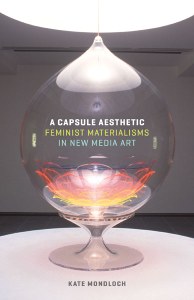Unbecoming Human (A Capsule Aesthetic)
The proper subject of the humanities is not man—its proper subject is the vital matter that constitutes the core of both subjectivity and its planetary and cosmic relations. — ROSI BRAIDOTTI, THE POSTHUMAN
By now, we’re all familiar with the self-conscious scholarly turn toward matter, and with the theoretical approaches known as “new materialisms” that have proliferated in its wake. While the specific critical investments of writers associated with this interdisciplinary area diverge and even contradict each other, their work is more or less unified by the conviction that a viable twenty-first-century philosophy needs to account for the activity of materials and the nonhuman world. (See, for example, Coole and Frost, 2010; Dolphijn and van der Tuin, 2012). I heartily agree with this assessment. At the same time, however, theorists who are invested in questions of ethical-political subjectivity, such as myself, are confronted with a seeming paradox: What could a post-anthropocentric subjectivity be? How might we develop critical frameworks capable of appreciating non-human agencies, materialities, and technologies, without, however, rejecting the role of human experience, or even discounting the embodied subject altogether? (I’m thinking here of the critique of “correlationism” associated with various speculative realisms, and the antipathy to relations in favor a “flat” world of autonomous objects among object-oriented ontologies.)
